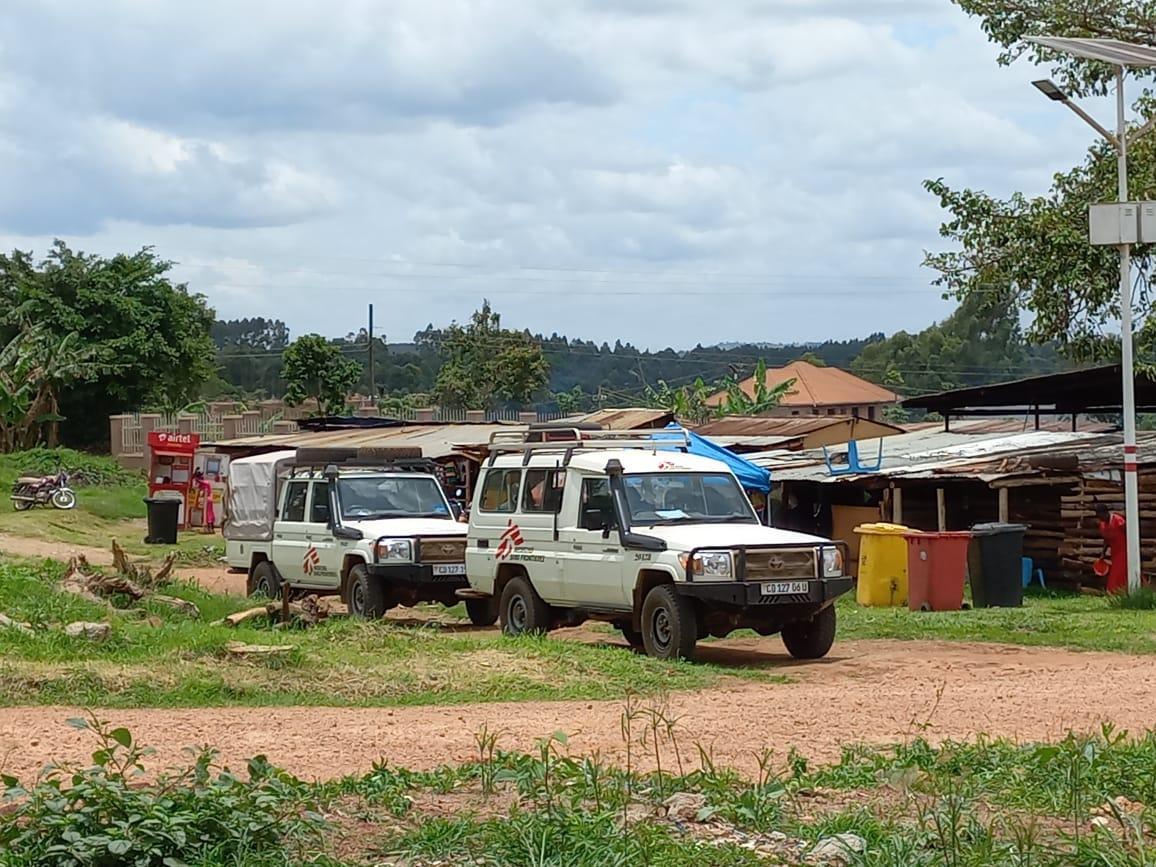UPDATE: As of September 28, MSF has set up a 36-bed Ebola treatment unit at the Mubende hospital, which will be expanded by 20 to 40 beds. In Madudu—the epicenter of the outbreak—MSF has started setting up an additional treatment unit. Both of these units will be managed by the ministry of health.
NEW YORK, SEPTEMBER 23, 2022—Following the September 20 declaration of an Ebola outbreak in Uganda in the country’s central Mubende district, the ministry of health has asked the international medical humanitarian organization Doctors Without Borders/Médecins Sans Frontières (MSF) to support its efforts in the fight against the spread of the disease.
On September 21, an MSF team of six people—including doctors and logisticians—traveled to the town of Mubende to carry out an assessment of the situation and the needs at the regional referral hospital, where the first case was detected. The virus has been confirmed to be the rare Sudan strain of Ebola for which there is no approved vaccine or treatment, unlike the Zaire strain that caused the last several outbreaks in the Democratic Republic of Congo.
Since carrying out this assessment, MSF has begun setting up an Ebola isolation and treatment center in the Mubende hospital to help improve patient care. Teams are also exploring the possibility of setting up a second center in the town of Madudu, which is approximately 25 kilometers [15 miles] north of where the first person who died from Ebola originated and where several suspicious cases are reported.
MSF is currently putting together a team of health workers, epidemiologists, and logisticians with experience in hemorrhagic fevers to start work next week.
The last Ebola outbreak in the country occurred in 2019. MSF intervened at that time to support the Ugandan health authorities in the management of people who had been in contact with these confirmed cases, the establishment of an Ebola treatment unit, and the improvement of infection prevention and control measures in health facilities.
Get the latest updates from our medical projects
As a member of the Doctors Without Borders online community, you'll receive our monthly eNews, updates about our work in the field, crisis response efforts, and events.




